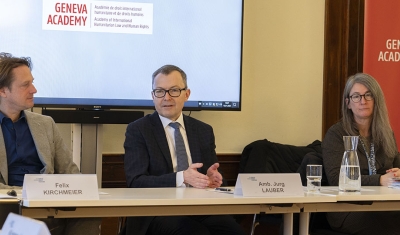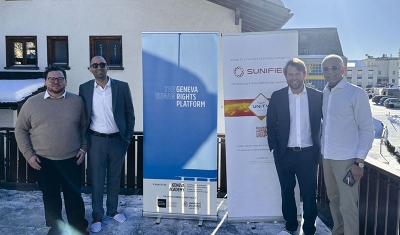ICJ Oral Hearings on Climate Justice – Diplomatic Screening and Commentary | GEN @ 25
Event

On 2 December, the International Court of Justice will start holding its first-ever public hearings on States’ obligations with regard to climate change. On 29 March 2023, the United Nations General Assembly adopted a resolution requesting the International Court of Justice (ICJ) to issue an Advisory Opinion on States’ obligations in respect of climate change. The resolution was the result of the leadership of Vanuatu and 18 other States. The resolution requests the ICJ to clarify States’ obligations with regard to climate change, with specific attention to vulnerable States and affected peoples and individuals, including future generations. The full text is available here in all official UN languages.
The International Court of Justice has now, for the first time in history, the mandate to address the obligations of States with regard to climate change, under multiple sources of law including international environmental law and human rights law.
From 2 to 13 December, the Court will hold public hearings. Ninety-eight States and twelve international organizations will be participating in the oral proceedings before the Court. These hearings are a turning point, setting the stage for the Court’s 2025 Advisory Opinion.
The Geneva Environment Network, the Center for International Environmental Law (CIEL), the Geneva Human Rights Platform, World’s Youth for Climate Justice (WYCJ), and Earthjustice have the pleasure of organizing a diplomatic screening of the first day of the public hearing, accompanied by a commentary by experts, intergovernmental representatives and State representatives from Geneva and the Hague.
The event is organized back to back with the Pushing Boundaries Through Collective Action: How Can Citizens Drive Systems Change and Catalyze Climate Action? | Climate Solutions to Keep 1.5° Alive | GEN @ 25 (starting at 15.30 CET in room XVII).
Details of the agenda and speakers, and the registration link for those wishing to attend in person can be found here.
The event will also be livestreamed on Youtube (Part 1 & Part 2).













